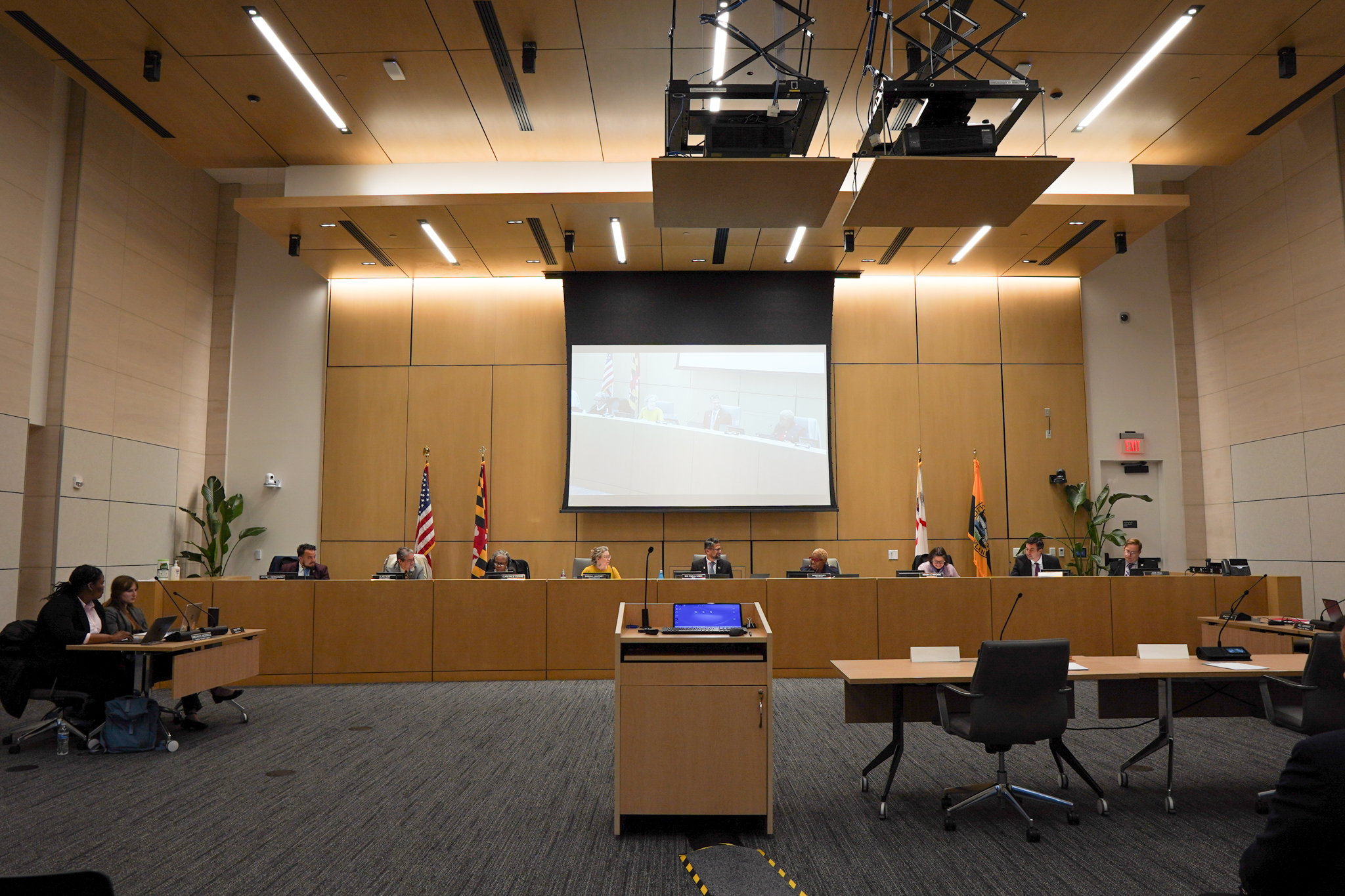In a packed College Park City Council meeting Wednesday night, nearly 30 students and about 10 landlords testified on a proposed city ordinance that would restrict when landlords can offer lease renewals to tenants.
If passed, the early lease ordinance would prohibit landlords from offering a lease renewal earlier than 180 days after the start of the tenant’s current lease, which falls late February for renters who begin their lease at the end of August.
The legislation, spearheaded by College Park student liaison Nick DiSpirito and deputy student liaison Amira Abujuma, aims to protect renters from pressure to re-sign a lease months before knowing their housing plans for the next year.
Several students shared personal experiences with the council about facing pressure to renew their leases early in the school year.
Junior public policy major Peyton McDonald said she began receiving emails and flyers encouraging her to renew almost a full year before her lease ended.
“The message was clear: Sign now or risk losing your home,” she said. “I was constantly worried that if we didn’t sign in time, our apartment would be taken by somebody else, or that I’d have to move into a different unit and start over.”
[College Park City Council to hold hearing on proposed early lease ordinance]
McDonald said the ordinance would relieve pressure by setting a reasonable timeline for renewals and give students breathing room to evaluate their housing options.
Junior finance major Jonathan Leung faced a similar situation.
“Approximately two months into this school year, our landlord began pestering my roommates and I constantly,” he said.
Leung said the pressure caused “premature panic” for him and his roommates. He added that he shouldn’t have to worry about releasing this early into the academic year, especially when dealing with schoolwork.
But several landlords at the meeting Wednesday night opposed the legislation primarily because of its “good cause” non-renewal and right of first refusal provisions.
Under the “good cause” requirement, tenants would likely have to go to court to prove their actions warrant a refusal to release because Maryland does not have a statewide definition of “good cause.” This means landlords could be incentivized to keep problematic tenants because of potential legal fees and the time it takes for someone to be convicted of a crime.
Lisa Miller, president of the Prince George’s Property Owners Association, said although many property owners would disagree with it, the 180-day restriction is workable. She urged the council to remove the good cause component.
Abujuma, the deputy student liaison, said the good cause language was based on the early lease ordinance in Ann Arbor, Michigan, and is not the focus of the liaisons’ push. She said they are willing to remove that provision.
Many landlords argued that the policy shouldn’t apply equally to single-family homes and large apartment complexes.
“One size doesn’t fit all,” College Park landlord Jamie Jaseph said. “The high-rise folks seem to be the ones with the pressure tactics. I’ve never done that in 22 years of being a landlord.”
[Holly Simmons, Kelly Jordan win District 2 College Park City Council seats]
Catherine Weber, a senior international relations major, testified in person against the ordinance.
Weber said she lives in a single-family house in Old Town, and signing her lease more than a year in advance gave her and her roommates peace of mind while she studied abroad last spring.
“If this ordinance had been in effect, I would have been forced to try and secure housing while abroad in Barcelona, juggling classes and being in a completely different time zone,” she said.
Student liaison DiSpirito said they will continue to push for 180 days for all city rentals. Landlords shouldn’t have to worry about filling vacancies, he said, because the demand for student housing in the city far outweighs the supply.
The ordinance allows students to sign leases early if they choose, but landlords cannot ask or pressure them to do so, DiSpirito said.
Robert Davis, president of property management company Green Coast Services, asked the council to table the bill to spend more time gathering input.
“I do not want a government entity telling me how to run my business,” he said, adding some practices in the ordinance will hurt his business.
The ordinance will also have an unintended consequence of driving up costs by flooding the market during the established timeframe, Davis said. With more students seeking housing at once, he argued, competition for the same properties could spark bidding wars and ultimately benefit landlords.
The liaisons said the ordinance will improve affordability in the city by allowing renters more time to review more affordable options. Abujuma explained that the ordinance won’t shorten the housing timeline, but shift it.
“Right now it’s the fall frenzy,” she said. “If you haven’t decided housing for in the fall, then you’re just not going to get housing for the spring, or you’re going to get something unreasonably priced.”
She explained that when that timeline shifts over, it might decrease housing prices for students because they will have more freedom of choice.
The liaisons expressed satisfaction with the student turnout Wednesday. Abujuma said it was “extremely phenomenal to see” and added she was also surprised by the landlord turnout.
The council has not yet scheduled a vote on the ordinance.



